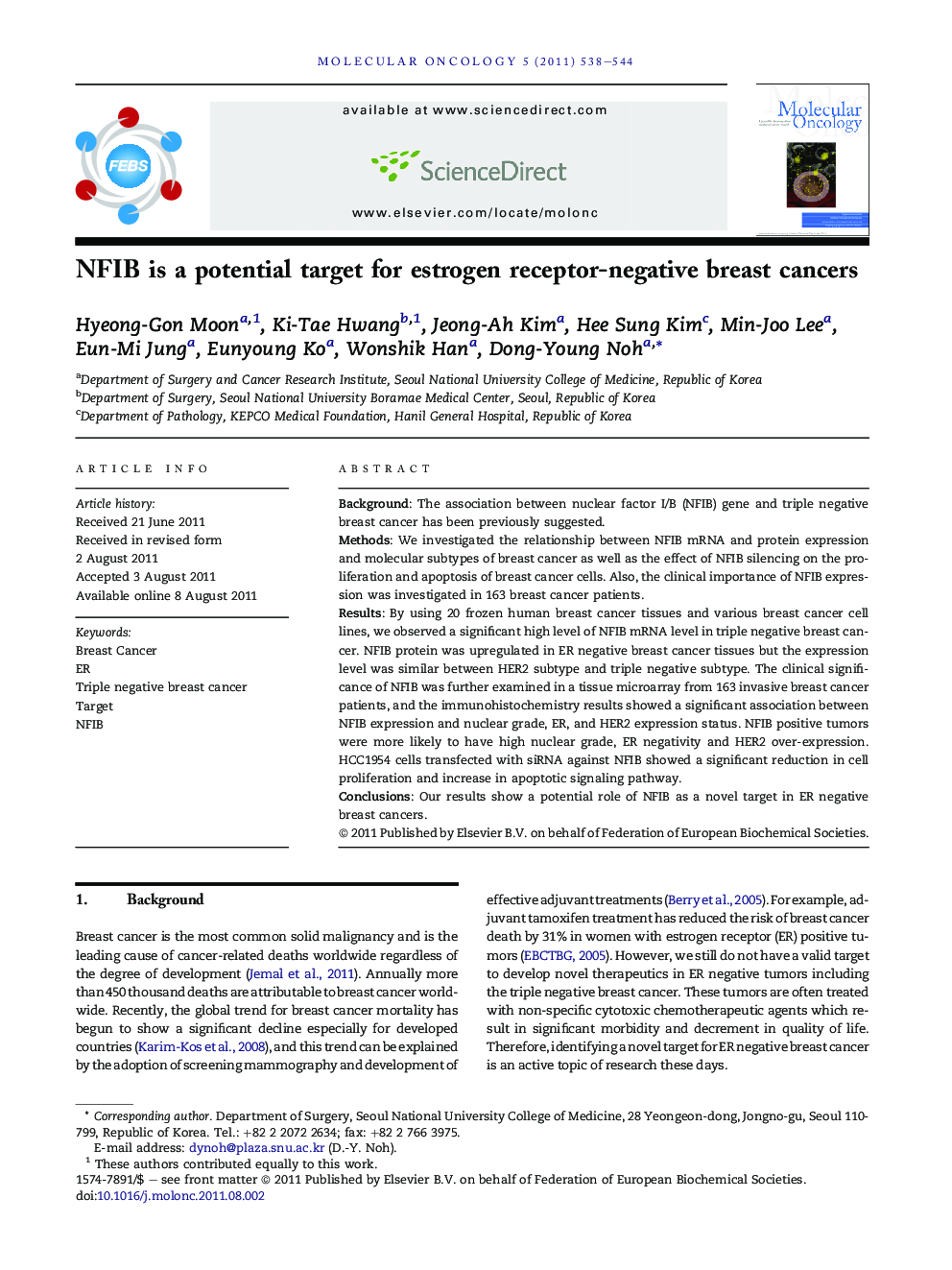| Article ID | Journal | Published Year | Pages | File Type |
|---|---|---|---|---|
| 2145644 | Molecular Oncology | 2011 | 7 Pages |
BackgroundThe association between nuclear factor I/B (NFIB) gene and triple negative breast cancer has been previously suggested.MethodsWe investigated the relationship between NFIB mRNA and protein expression and molecular subtypes of breast cancer as well as the effect of NFIB silencing on the proliferation and apoptosis of breast cancer cells. Also, the clinical importance of NFIB expression was investigated in 163 breast cancer patients.ResultsBy using 20 frozen human breast cancer tissues and various breast cancer cell lines, we observed a significant high level of NFIB mRNA level in triple negative breast cancer. NFIB protein was upregulated in ER negative breast cancer tissues but the expression level was similar between HER2 subtype and triple negative subtype. The clinical significance of NFIB was further examined in a tissue microarray from 163 invasive breast cancer patients, and the immunohistochemistry results showed a significant association between NFIB expression and nuclear grade, ER, and HER2 expression status. NFIB positive tumors were more likely to have high nuclear grade, ER negativity and HER2 over-expression. HCC1954 cells transfected with siRNA against NFIB showed a significant reduction in cell proliferation and increase in apoptotic signaling pathway.ConclusionsOur results show a potential role of NFIB as a novel target in ER negative breast cancers.
► We hypothesized that NFIB protein expression can be a novel target in breast cancer. ► We examine the NFIB expression in breast cancer cell lines and tissues. ► NFIB expression was associated with breast cancer subtypes. ► Silencing NFIB in HCC1954 cells resulted in decreased proliferation. ► NFIB can be a novel target for ER negative breast cancer.
